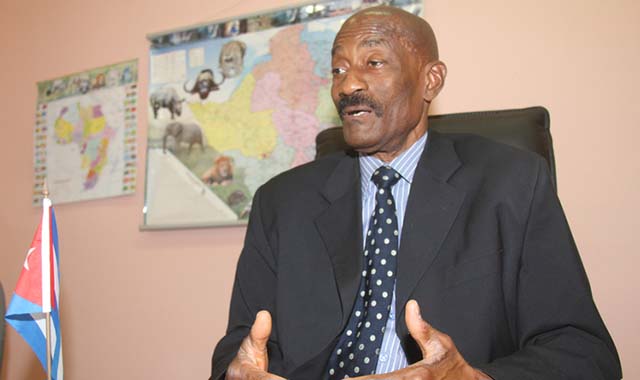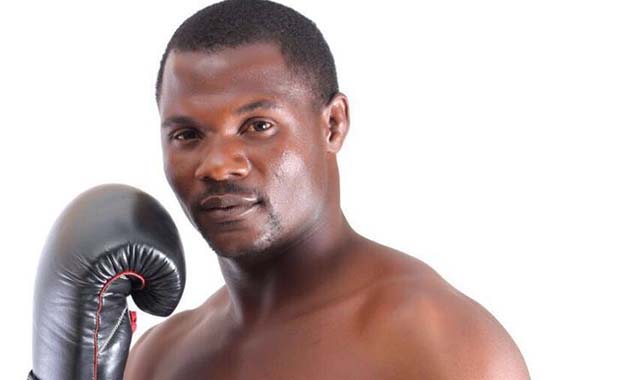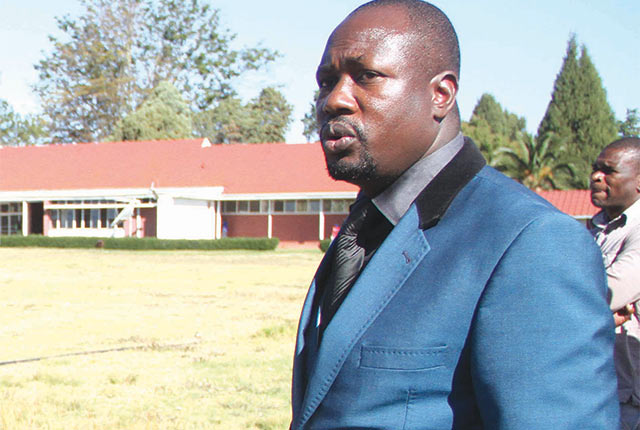‘Castro defied odds to leave Cuba united’


Ambassador Elio Savon Oliva
THE INTERVIEW Christopher Farai Charamba
Former Cuban leader, the iconic Cde Fidel Castro Ruz, died on November 25. His legacy in Africa cannot be overstated as he contributed to the liberation of many African countries and supported their development in the post-colonial era. The Herald’s Christopher Charamba (CC) spoke to Cuban Ambassador to Zimbabwe Elio Savon Oliva (EO) on Cde Castro’s legacy and Cuba’s relations with the West and Africa.
CC: First of all, Mr Ambassador, could you tell us what sort of legacy President Fidel Castro has left in Cuba and for the Cuban people?
EO: He left a united people and an educated people. A people with a sense of dignity. He left a people with a sense of solidarity. Those are the values that have been inserted in all the years of Fidel Castro leading. These are the main aspects, in terms of our people that he has left.
CC: What were some of the challenges that Cde Castro faced in building these values that you have talked about? You spoke about an educated people and a united people. What challenges did he face in bringing this about?
EO: First of all, the fact that from the very beginning of the revolution in 1959, the revolution started to face the hostility of the United States and their government. The hostility of 11 American presidents, who had hostile policies against Cuba until recently when there have been certain steps in other directions.
This is the main hostility. All these values were not inserted in peace. They were inserted while facing the hostility of a country who wanted to destroy what we were doing in terms of inserting these values.
They did this in various ways, through bans, funding guns against the revolution, financing sabotage, even now they give $20 million to try to change the legal government of the Cuban system.
So this is the main challenge apart of course from the national situation and the economic situation that affects all our countries. We have also suffered the economic embargo. It is the critical part of that hostility. This is an economic, commercial and financial embargo that has been there for more than 50 years. Probably the longest most comprehensive embargo in history.
So it has been very difficult to create these values under these conditions. But we have succeeded and President Castro succeeded in instilling the values.
CC: You’ve spoken about the embargo. Zimbabwe has faced sanctions for the past 16 years or so. What lessons can Zimbabwe learn from this model that saw you managing despite a punitive embargo for over 50 years?
EO: Well in our case, there was first the political will. Political will of the revolution, political will of the government conducted by Fidel Castro to move forward no matter what. Like I said that needs unity of the people. It needs unity of purpose and it means that people have to trust the leadership.
We went through very difficult situation where there was scarcity and other problems. But people had faith in the leadership and people realised where the enemies are and the people who supported them were.
So this is how we managed, through unity and being very focused. We always considered that things like health and education are basic human rights. We decided to fight to provide these human rights.
I can also say that this embargo has been there for more than 50 years and is still there. Apart from the embargo, in the late 1980s the old socialist bloc fell down and Cuba had the embargo on the one side and former friends becoming unfriendly on the other side, but we decided to move ahead.
So the idea that Cuba was a puppet of the Soviet Union was proven wrong because the Soviet Union disappeared but Cuba didn’t disappear.
These were some of the challenges that we faced and thes are the reasons why in those very difficult circumstances, Fidel Castro was able to conduct his people to the situation they are in today.
But I have to add that it is not only that we decided to maintain free education and health care no matter what, we also decided to maintain the solidarity of our friends. In that vein, of the thousands of foreign students, we never sent any of them back home because of the situation we were in.
We continued to help others according to our possibilities, within the limitations that we had. We understood that solidarity does not mean to give what you have in excess, but to share the little we have.
So that’s how about 80 000 people were educated in Cuba from Africa, and thousands have studied medicine in Cuba. Thousands of our professionals, mainly in medicine, have served in many countries. We have doctors in about 70 countries all over the world, helping.
On the one hand, our doctors go to the places where many doctors in those countries don’t go. They go to very remote areas. Secondly, the scholarships we give, we try to give them to people in very difficult situations, remote areas and underprivileged people who would otherwise not have access to these positions. This has been our policy and our values which are still there.
CC: You spoke about the relationship that Cuba has with Africa. What in particular has been the relationship between Zimbabwe and Cuba over the years?
EO: There have always been good relations between Cuba and Zimbabwe. Those are relations that go back to the period of the struggle for independence. Cuba supported the leadership of the liberation movement in Zimbabwe.
After independence we tried to support Zimbabwe and help according to our possibilities. We helped Zimbabwe in terms of education. 3200 students graduated in Cuba on scholarships even though we were already under the embargo.
We also tried to help in terms of professionals. When the Bindura University of Science Technology opened it was an extension of our cooperation and we sent our lecturers who are still there.
We have also sent doctors all these years, there are doctors working in all areas of Zimbabwe. I want to mention that relations will continue. In all situations, whether it is after the fall of the Soviet Union, Cuban solidarity and friendship with Africa remains.
When we start diplomatic relations with the United States, the Cuban solidarity with Africa will remain. Now that Fidel Castro has physically disappeared, the Cuban friendship with Africa will remain in check. This is something that has to be very clear for all African countries and brothers and sisters to know.
That legacy of solidarity, friendship and support, without asking anything, that was taught to us by Fidel, will stay in Cuban consciousness.
CC: And in Southern Africa in general he was also critical. What inspired him to get involved and support especially liberation movements?
EO: It is that sense of solidarity with others. The sense of looking for the humble people, needy people and underprivileged people. That is the concept behind the fact that wherever there is an injustice, there should be a thought about that injustice and how to correct it, how to help the people in need.
You are talking about that help. At the same time, Cuba did not take anything away from Africa, no timber, diamonds or gold from Africa. The only thing that we took when we left Africa after helping the liberation movements or helping governments to kick out hostile forces, were our dead bodies.
What inspired us is the concept of humanism that we share with others and trying to help others. Of course the international media is very good at distorting realities and putting a blindfold on people so that they think otherwise. Unfortunately, people sometimes don’t know how things are taking place.
CC: President Castro is said to have survived 638 assassination attempts by the CIA. This obviously had a bearing on relations between Cuba and the USA. How has the relationship changed though in the last few years? We know that the United States recently reopened its embassy in Havana, so how is the relationship changing between the two countries?
EO: Like I said before, for all these years the hostility with the United States was not only hostility in speeches, but hostility in investing millions of dollars trying to destroy Cuba in whatever way you can think of. Including military invasion, like the Bay of Pigs incident.
About the attempts, it’s also true that according to the committee in the American Senate, the CIA participated, supported or carried out about 638 attempts against Fidel Castro’s life, that was said by them, not by us.
On the other hand, as you rightly said, since December 17, 2014, there was a statement by President Obama and President Raul Castro about the fact that they had started to initiate the process of looking toward the normalisation of relations and to establishing diplomatic relations and so on.
This is a complex process, because they did establish diplomatic relations, but it is one thing establishing diplomatic relations and another thing normalising those relations. Normalising our relations will be a long process because after 54 or 55 years of this situation, there are a lot of things which need to be changed.
We appreciate the statement by President Obama in this regard but at the same time the embargo is still there, there is no trade between the two countries, there is no possibility of making transactions with the US dollar, it is prohibited for Americans to travel to Cuba as tourists; they can only travel under certain categories.
There is still a law called the Cuban Adjustment Law; Cubans are the only nationality in the world who can get instant entrance to the United States no matter how they got there. It doesn’t matter if it is illegal, whether they robbed someone or hijacked a plane, it doesn’t matter if they have killed someone. This is the only country that has this privilege.
There is also the Guantanamo Bay base which has been there for more than a century against the will of the Cuban people. We think that under normalised relations this has to be eliminated. As you know this base is where the US takes people to prison and violates their human rights for many years. There are people who have been there for decades without any trial.
Also there are a number of illegal transmissions to Cuban television and radio. Cuba has managed to block the television signal; it doesn’t reach Cuba. They are also trying to subvert Cuba, that is another thing that is happening in terms of hostility from the US that will make the normalisation of relations difficult.
In addition to that, it should be known that every year the American president signs $20 million that they say is to promote democracy in Cuba. You can see that after all these years, the people are united. What democracy are you talking about?
Many people in the world wanted to have the lack of democracy that Cuba has. Many people wanted to have the disrespect of human rights that Cuba has. There is $20 million every year from the taxpayer that is given to change Cuba. We have seen the changes of America within Libya, we saw the changes in Iraq and in Syria. So those changes, we don’t want them.
We correct in Cuba whatever needs to be corrected. We are not perfect; our system is not perfect. We have a lot of things that we have to correct and can do better, but we want independence and self-determination. We don’t want someone to dictate how to rule our country, we know how to do that.
All this is part of the legacy of Fidel Castro that there is dignity, independence and that we will not accept imposition from anyone no matter how strong or powerful or how much money they have.
CC: You mention not wanting to receive imposition from anyone and these are similar things that Zimbabwe is facing from neo-colonial powers who want to impose their will on the country. What parallels can be drawn between what Cuba has experienced and what Zimbabwe and other African countries are going through?
EO: Well, I think that this issue of trying to impose the position in other countries is typical of powerful countries, these imperialist forces. In that sense I think it might not differ from one country to the next although they use of course different means according to the specific situation of the country.
So for example Cuba, it is just next door to the United States. There is no enemy so close to the United States and we have resisted for more than half a century.
But it is difficult to compare because Zimbabwe has its own history and situation which is not necessarily the one of Cuba. Zimbabwean people have to study all the examples and see which path they can go through.
In our situation we are very grateful to the Soviet Union for the support they gave us during the blockade and not only the Soviet Union but all the Eastern European countries. We cannot however, pretend to imitate what the Soviet Union went through and their situation.
The only thing I can say is that the best friend of the imperialist forces is disunity. They live on disunity. They will try always to have disunity among the people. So unity is a very important thing to have as you move forward.
CC: What can Zimbabweans and Africans in general learn from Fidel Castro’s legacy?
EO: The legacy is to try and be focused and not to get diverted. To be focused you have to have a strategy and think about what you want for your country. There are many forces that will try to break you apart.
The other thing is education. The people have to be educated. The first thing Fidel did was teach people how to read and write because they have to understand. I remember Fidel said “we don’t ask people to believe, we ask people to read.” So this is one thing.
There have been tens of thousands of Africans who have studied in Cuba so they would know, they would see how they were treated in Cuba, how they were assisted, how they were able to be integrated into Cuban society.
The legacy is to defend your dignity and try to look for self-determination, to do things your way. Many people come to Africa and spend one or two years and they think that they know Africa or know Zimbabwe and what Zimbabwe must do. This is not correct.
Self-determination is the most important issue and trying to move forward. This though, has to be based on people being educated and in Zimbabwe you have gone quite a long way in educating people.









Comments